Public Without Rhetoric is the project selected to represent Portugal at the 16th International Architecture Exhibition of La Biennale di Venezia. The curators Nuno Brandão Costa and Sérgio Mah propose a tour of the “Public Building” of Portuguese origin through 12 works created at a time when Western Europe is confronted with its limits and possibilities and as architecture manifests its nonconformist nature in reinforcing its role in political and social intervention.
The central theme given to the Biennale Architettura 2018 in the vision of its curators Yvone Farrell and Shelley McNamara, Freespace “celebrates architecture’s ability to find additional and unexpected generosity in every project, even in the most private, defensive, exclusive and commercially restrictive conditions.”
The Portuguese Official Representation this year is an affirmation of Architecture as a celebration of the experience of public space, highlighting its fundamental importance in the creation of experience in contemporary societies. The creation of relationships, dynamics and flows through experimental work in public territory builds and promotes new networks and opportunities. Public Without Rhetoric is thus the formal basis for a reflection on architecture in public space, part of the 12 projects created in the last ten years by different generations of Portuguese architects.
The exhibition presents the architectural projects through drawings, models and photographs. In parallel, the inhabited buildings are shown through a set of films commissioned from Portuguese artists. The works chosen by the curators demonstrate the diversity of programmes and scales in which Portuguese architects work, emphasising their universalist culture and cross-generational excellence, with representation of architects born in every decade from the 1930s to the 1980s. Grouped together to create formal and spatial relationships, the works are exhibited without chronological or generational order, thus escaping any hierarchical reading. The intention is rather to form a compact whole, demonstrating the coherence and rationality of Portuguese architecture without obscuring the idiosyncrasy and charisma of each individual building.
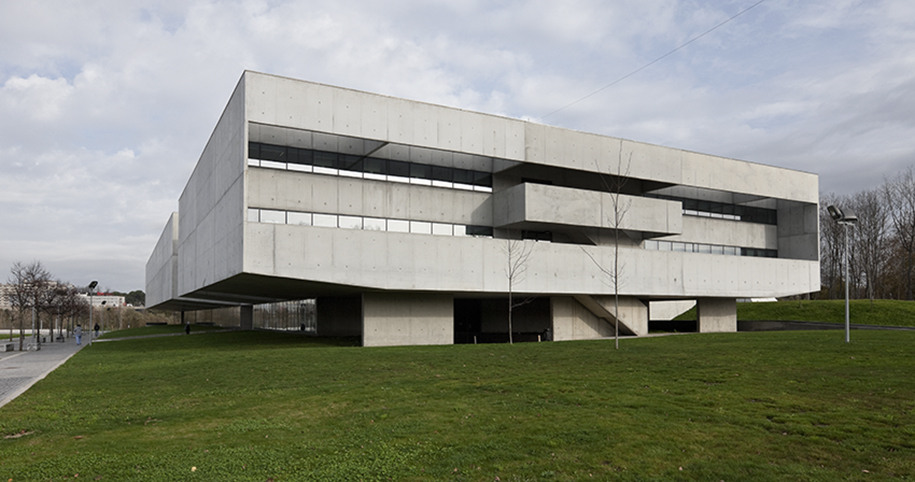
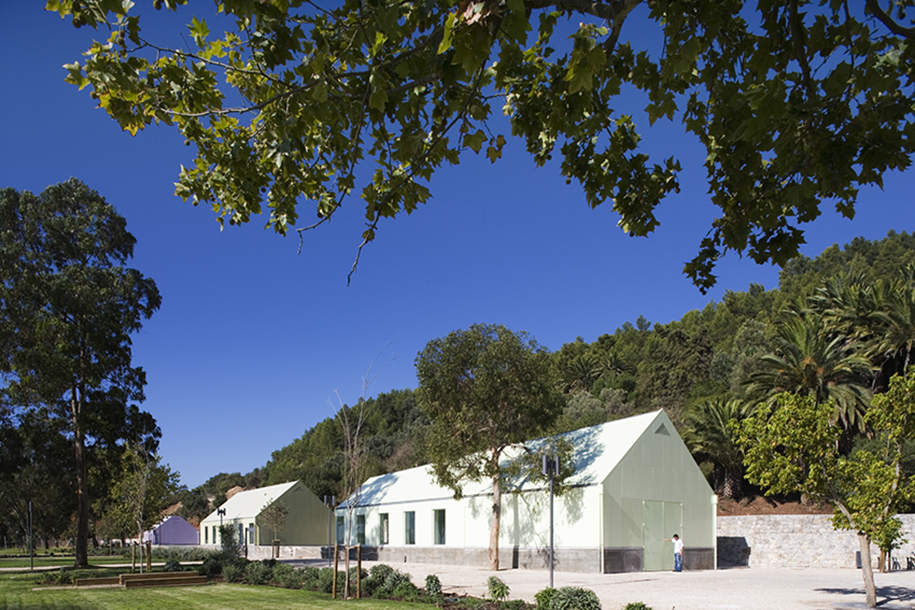
In the exhibition building, the videos by four contemporary Portuguese artists will be presented exploring the current state of the works, specifically in regards to the different methods and dynamics of appropriation employed by the people who inhabit the buildings and fulfil the public mission of these works to various extents.
The overall proposal of the exhibition is thus for its initial impact to be one of greater subjectivity and vibration, which is then further developed in the exhibition rooms with a more objective and architectonic analysis of the works through conventional and current elements of their representation.
For the first time ever, the project representing Portugal in Venice is the result of a public competition promoted by the Portuguese government through the Directorate-General for the Arts. This unprecedented selection model which will be repeated in the future allows the government to issue a challenge to the nation’s artists, architects and curators to develop artistic proposals for the Portuguese Representations at the International Art and Architecture Exhibitions of La Biennale di Venezia.
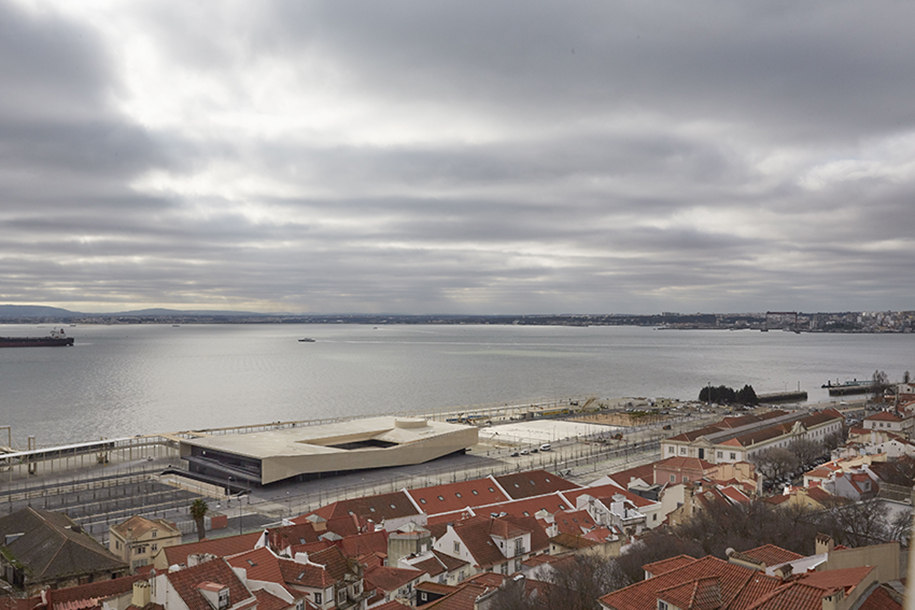
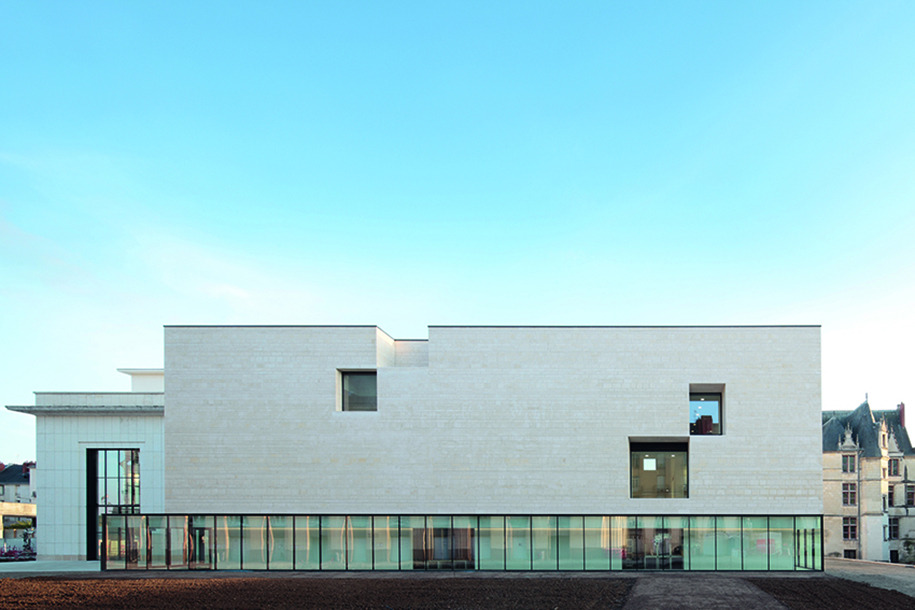
The Official Portuguese Representation will be installed in the Palazzo Giustinian Lolin, located near the Ponte dell’Accademia in front of the Grand Canal and the seat of the Fondazione Ugo e Olga Levi, which is dedicated to music education and with which the Directorate-General for the Arts established an agreement for the use of its space for the year 2018. The Palace dates from the seventeenth century and is considered one of the first works of the architect Baldassare Longhena (1598-1682). The complex consists of two buildings joined by two passages that surround a beautiful welled courtyard.
The official inauguration of the Portuguese Pavilion will take place at 4:00pm on 24 May 2018 at the Palazzo Giustinian Lolin, headquarters of the Fondazione Ugo e Olga Levi.
Public Without Rhetoric
text by the curators – Coinciding with the economic crisis, the last ten years have seen a movement away from public construction projects, with the predominant neoliberalism of Western Europe viewing them as unnecessarily wasteful, misguided and even harmful.
The construction of public infrastructure such as cultural, educational and sporting facilities is in line with the idea of civilisational evolution and progressive social equity. It simultaneously rebuilds and rehabilitates the form of the city, and qualitatively and culturally renews public space.
In the decade spanning the beginning of the crisis in 2007 to the present, despite the sharp decrease in this type of investment, a significant number of high-quality public works have been built, embodying the resilience of some central, regional, local and institutional niches of decision-making. These include both entities that continued their commitment to projects from before the onset of the crisis and others that assumed responsibility for launching new countercyclical projects during the same period.
These centres of resistance were matched by Portuguese architects. The discipline’s characteristic passion, charisma and voluntary spirit was enhanced and became associated with a very clear understanding of the social and political role of architecture, despite a highly adverse environment for its practice.
This selection of 12 works constructed over the last 10 years offers a short history of the most recent ‘public buildings’ of Portuguese origin. Each of these buildings reflects the ideas behind ‘Freespace’, the central theme of the 16th International Architecture Exhibition – La Biennale di Venezia.
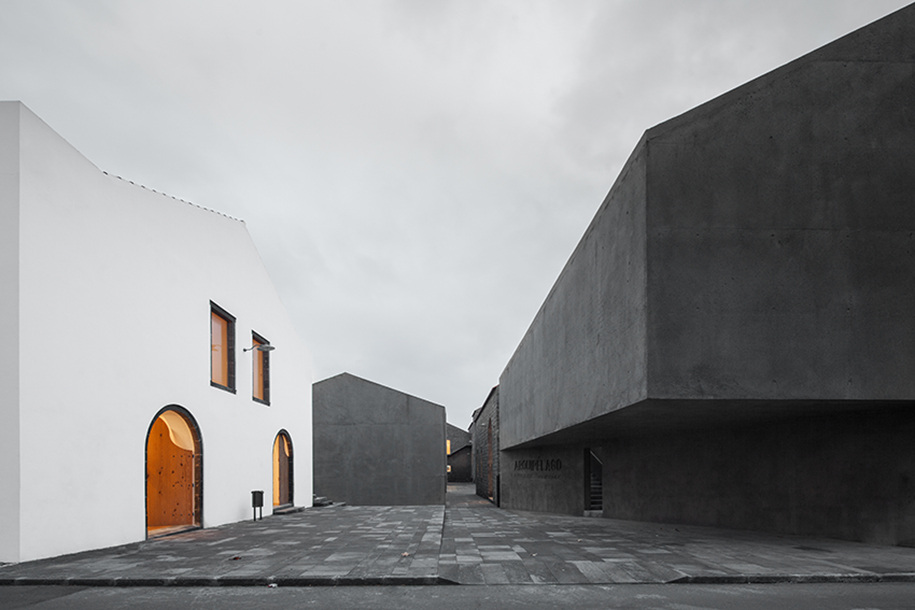
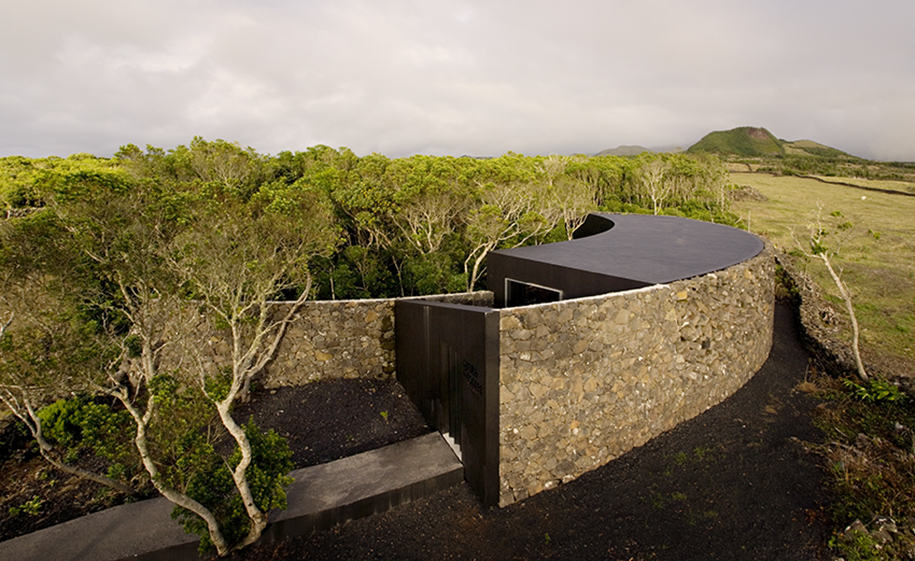
This choice of works seeks to demonstrate the diversity of programmes and scales in which Portuguese architects work, emphasising their generalist culture and cross-generational excellence, with representation of architects born in every decade from the 1930s to the 1980s.
The exhibition will also include a series of films exploring the current state of the works, specifically in regards to the different methods and dynamics of appropriation employed by the people who inhabit the buildings and fulfil the public mission of these works to varying degrees. The films are produced by four contemporary Portuguese artists with consolidated and widely recognised bodies of work in the visual arts and cinema and with previous experience in the field of architectural representation.
Curator Bios
Nuno Brandão Costa (b. 1970) graduated in 1994 from the Faculty of Architecture at the University of Porto, where from 2001 he subsequently worked as a lecturer and completed a doctorate in 2013. From 1992 to 1993, he studied with Herzog & de Meuron in Basel, Switzerland, and from 1993 to 1997, he collaborated with José Fernando Gonçalves & Paulo Providência in Porto, Portugal. In 1998, he was awarded first prize in a competition to design the Library of the Faculty of Social and Human Sciences at Universidade Nova in Lisbon. His work was exhibited at the 9th International Architecture Exhibition of La Biennale di Venezia in 2004; at the São Paulo Architecture Biennale in 2005; at ‘Portugal Now’ at Cornell University, New York in 2007; at ‘Tradition is innovation’ in Tokyo in 2011; at the the Milan Architecture Triennale in 2004 and 2014; and at the 2nd Biennale of Architecture in Chicago in 2017. He directed the exhibition projects of the Lisbon Architecture Triennale in 2007 and 2016. He was nominated for the ‘Mies Van der Rohe’ award in 2008; for the BSI – Swiss Architectural Award in 2012; and for the FAD Prize in 2017. He was awarded the ‘Jornal Expresso/SIC’ award in 2004; the Secil Prize in 2008; and the Vale da Gândara Award in 2010/2011. He is Visiting Professor at the ETSA of the University of Navarra, at the Estudio Barozzi University of Girona and at the EHL CAMPUS Lausanne. He is guest critic at the School of Architecture of Minho University (EAUM), at the Department of Architecture of the University of Coimbra (DARQ), at the École Polytechnique Federale de Lausanne (ENAC-EPFL), at the FAPyD-UNR of Rosario and at the Harvard Graduate School of Design (GSD), Cambridge, USA. He was a coordinator and professor of the Advanced Studies in Architecture Project (EAPA 2014/2015) at the FAUP. He has contributed to conferences and seminars at faculties of architecture in Germany, Argentina, Bulgaria, Colombia, Croatia, France, Italy, Macedonia, Portugal, Republic of Ireland, Spain and Switzerland.
Sérgio Mah (b. 1970) lives and works in Lisbon. He holds a bachelor’s degree in Sociology and a master’s degree in Communication Sciences. He is currently Professor of Photography and Visual Arts at the Faculty of Social and Human Sciences at Universidade Nova in Lisbon and at the Faculty of Fine Arts at the University of Lisbon. He is the author of several essays on artists, their work and various other topics relating to contemporary visual arts. He is co-author of the documentary series ‘Entre Imagens’ for the public television channel RTP2. As a curator, he has been responsible for numerous solo and group exhibitions for artists such as Thomas Demand, Walid Raad, Jeff Wall, Francisco Tropa, Victor Burgin, David Claerbout, Hiroshi Sugimoto, Pedro Costa, Albert Renger-Patzsch and Ângelo de Sousa. He has worked with several centres of art and museums both in Portugal and abroad, such as Jeu de Paume (Paris), Reina Sofia National Art Museum (Madrid), Deichthorhallen Hamburg, Berardo Museum, Telefónica Foundation (Madrid) and the Thyssen-Bornemisza National Museum. He was the commissioner- general of the 2003 and 2005 editions of LisboaPhoto and of the 2008, 2009 and 2010 editions of PhotoEspaña. He was the commissioner of the Portuguese Pavilion at the Biennale Arte 2011.
Opening 24 May, 4 pm
Opening Hours 26 May to 25 November – 10am to 6pm
Closing Day 25th November
Address
Palazzo Giustinian Lolin
Fondazione Ugo e Olga Levi
San Marco 2893 I-30124 Venezia VE,
Itália
(Near by Accademia Bridge)
Boat ACCADEMIA Line: 1, 2 and N
READ ALSO: Νέα online παρουσία του ΕΣΩ σε συνεργασία με την obqo